Helpline for youth in Uganda
In many parts of the world, mental health problems are highly stigmatized. In Uganda, only one percent of the health budget is earmarked for mental health, and the lack of help means that many young people are taking their own lives. With support from Norway, a project has put the spotlight on Ugandan youth with mental health conditions.
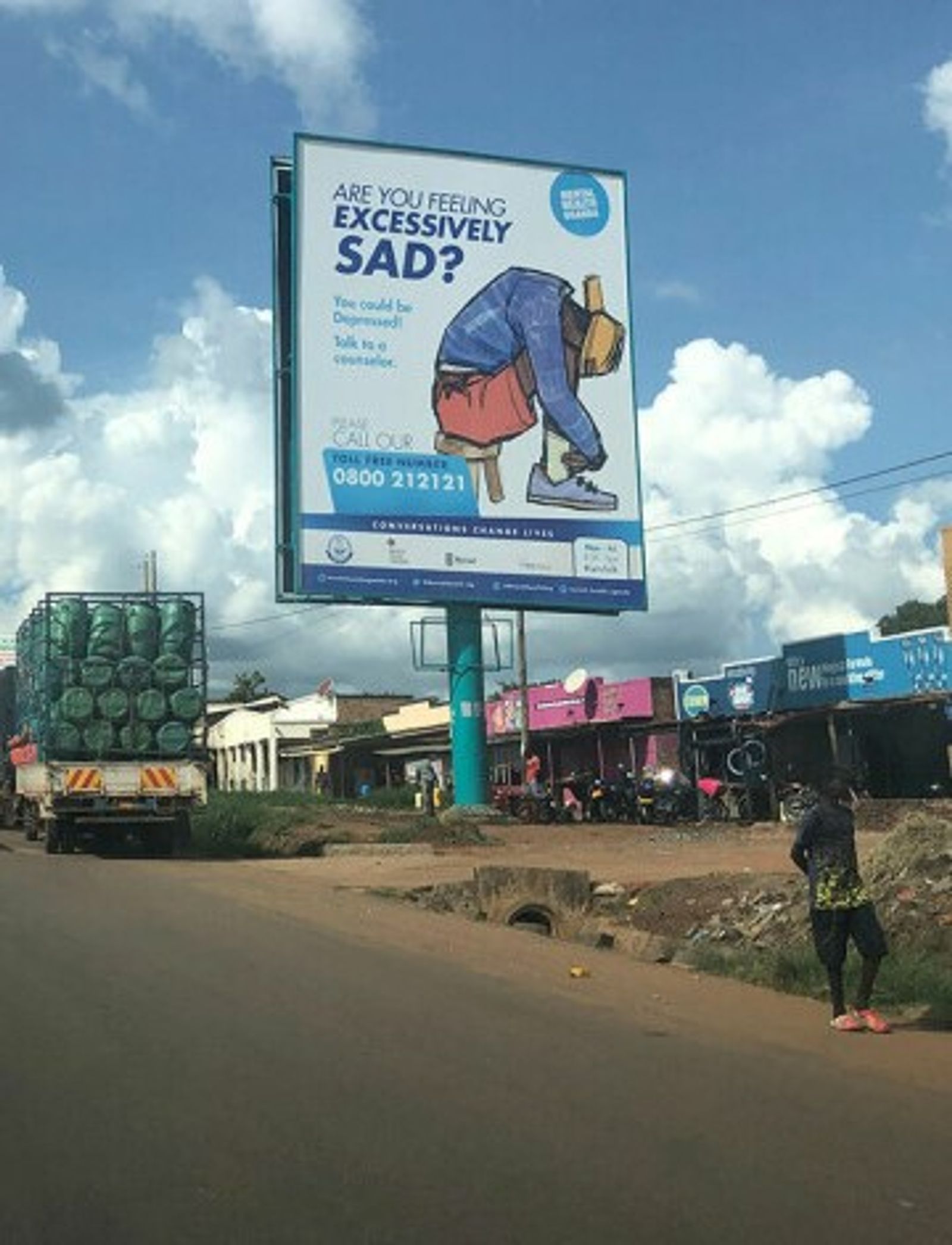
Kampala, 14 october 2020
It is late in the afternoon when Diana (34) gets in the car. She turns onto the main road and continues towards the big traffic light. She holds on tight to the steering wheel, tears are running down her face. The day at the office was a nightmare, and all she manages to think about is that this day must be her last. When the light turns green, she sees a large truck, and she decides to follow it out onto the highway.
«When I get up to speed, I’m driving into it! Let this end now!» she thinks and drives faster. The adrenaline rushes through her body. She sobs, and through her tears she sees the road as if in a fog. The truck is now only a few meters away. «I can no longer bear it! Do it now! Just do it!» Just before she is about to drive under the truck, she hears an intense honking. She turns around and sees that a car has come up on her side. The driver honks and signals that what she is doing is pure madness. Diana comes to her senses, and soon the truck is gone. She stops her car, and her whole body trembles.
The commercial
When she fell into deep depression, she had thoughts of drowning herself. She was seconds from taking her own life when she found the number of a helpline.
It’s less than an hour since she closed the office of the company she started a few years ago. After several years working as an employee, she decided to follow her dream of starting her own company. The last few years have been a constant struggle to get the company up and running, but today the hard-working and always positive Diana is a successful woman, who in the eyes of others’ lives the perfect life.
Inside her, however, there is a full-blown uprising. She turns the car around and starts driving home. Her tears are flowing and she does not know what to do. Back home, she smiles at the security guard as she always does and opens the door to her apartment. She turns on the TV and stares at a man talking.
«There are positive people who light up everywhere they go. They make everyone around them feel happy, but inside themselves everything is dark. Many end up taking their own lives». Diana stares at the screen. «Is he talking about me now?» she thinks. The man continues: «If this sound familiar, do not hesitate to call! You do not have to fight alone anymore, we are here for you!».
She takes a picture of the phone number that appears on the screen and sits for a long time thinking: «Should I call or not?» Finally, she dials the helpline with trembling hands, and a soothing voice on the other end gives her the courage to tell what has happened. «Thirty minutes ago, I was about to take my own life. I can not take it anymore!».
Kampala, october 25th, 2021
The shade from some large trees creates a pattern on the lawn in the large garden.
«Imagine that it has been a year since I decided to end my life in that car,» she says, pointing to a Toyota parked behind the house.
«I was deep in a dark hole and was sure that I would never come back to life again. Without Mental Health Uganda and their skilled advisers, I would not be alive today, of that I’m sure», she says.
Thirty-five-year-old Diana was born and raised in a family where her father threw her out of the house when she was 13 and her mother died four years later. Ever since childhood, she has had to take a lot of responsibility, and she has fought all her life to stand on her own two feet. Despite her difficult life, she has always been a positive and warm person who spreads joy around her. As the owner of two companies, she is doing well, and the future looked bright. In March 2020, however, the corona crisis came, society closed down, and tourists stopped coming to Uganda. Diana and many other business owners were left without income for long periods. After months of closed borders, she was deeply depressed and struggled with frequent panic attacks.
«It was not that I did not have money. I was one of the lucky ones who did not struggle financially. What made me depressed was the greed of the authorities and how they really do not care about all business owners as long as they could put money in their own pocket. The corona crisis in Uganda is pure business for a few people», she says.
Without Mental Health Uganda and their skilled advisers I would not be alive today, of that I’m sure
Stab yourself
Diana is unmarried and has no children, so she had plenty of free time to do things she enjoyed – like cooking and going down to the sea to sit in peace and look out over the ocean. The depression changed all that.
«I remember that I could stand in the kitchen cooking and suddenly think: ‘Stab yourself with the knife, now!’ When I went to the sea to calm down, I had thoughts of drowning myself», she says, crying over the memories.
She tried to open up to family and friends, but no one took her seriously. Because she always spreads joy and positivity around her, no one saw how she struggled. The day she followed the truck, however, her life took a new turn.
«The day after that conversation, I went to therapy for the first time. I cried unstoppably, and they listened for hours. For the first time in my life, someone listened to me without judging. I will never forget that day».
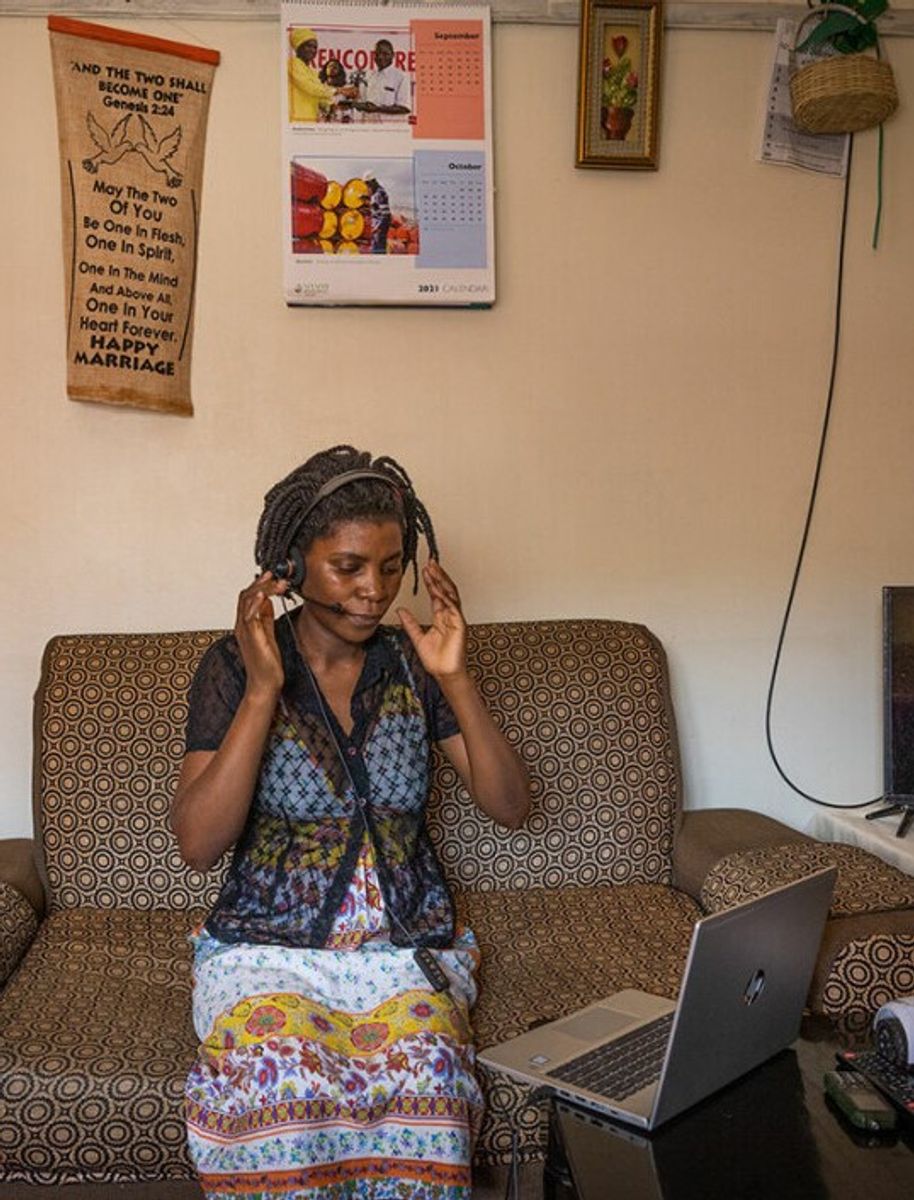
Young suicides
Six counselors and a psychiatric nurse are associated with the service. They speak a total of five languages and have extensive experience in guiding people with various forms of mental health challenges. Erusa Nakiyimba, who became Diana’s advisor, has helped dozens of people over the past year.
«The most common conversation is with young girls or boys who are struggling mentally. Many feel that their parents are not happy with them, while others have identity problems. There are a surprising number of young people who are suicidal», says Erusa.
Due to the corona crisis, she and the other advisers have worked from home for long periods.
Her employer, Mental Health Uganda, a non-profit organization with around 20,000 members in 31 of the country’s districts, is the country’s leading organization for people with mental illness. The helpline is just one of many services that the organization offers, but this offer has proven to be much needed among many.
«Health services with a focus on mental health are in short supply in Uganda, and people are struggling in silence. Mental health problems often appear early, and young people have no one to talk to when they have problems», says Daniel Lubanga, who is project coordinator for Mental Health Uganda.
Health services with a focus on mental health are in short supply in Uganda.
Norwegian-supported project
The helpline was established last year with support from the Norwegian organization Youth Mental Health Norway. They have experience in operating free call services through their “Rightsphone” project, where young people can get advice and guidance on what rights they have in the health and social security system. It is this service that became the source of inspiration for the Ugandan helpline and project Amplifying the Voices of Young People with Mental Health Issues in Uganda. The five-year project has received support (around NOK 15 million) through the Atlas Alliance and is subject to Norad’s framework agreement.
«The goal was to establish a service that makes psychosocial support more accessible to people who do not have the money or geographical proximity to the few services available. The service is the first of its kind in Uganda, and I think we all sat with a lump in our stomach at the launch in May – curious if anyone would call. Now it has turned out that the helpline is a long-awaited offer for many», says Tuva Rosenvold, who is an advisor for the international section at Mental Health Youth.
Large numbers
Worldwide, more than 800,000 people take their own lives each year, which equates to one death every forty seconds, according to numbers from the World Health Organization. Suicide is ranked as the second leading cause of death among young people between the ages of 15 and 29, and 79 per cent of suicides occur in low- and middle-income countries.
In Uganda, there are only about 35 psychologists for 45 million people, and only one percent of the country’s health budget is earmarked for mental health. Most of the state support goes to the country’s only psychiatric hospital, Butabika, which is located in the capital Kampala.
In small towns and in the countryside, many people struggle with their problems in silence. Across large parts of the African continent, and also in many parts of Ugandan society, people with mental illness are still considered insane. In rural areas, it is not uncommon for families to keep people with mental illness locked up or chained to trees or poles. The lack of health services and strong traditional beliefs lead to people either being left without help or seeking witch doctors and traditional healers.
The authorities are failing
Mental Health Uganda works closely with the country’s authorities, and it is the health service that is responsible for any treatment of those who seek help via the telephone service. Cooperation with the authorities is demanding at times.
«We would very much like to collaborate with the health service, but the lack of priorities, budget and professionals from the authorities means that the investment in mental health is minimal», says project coordinator Lubanga.
«When a person calling the helpline needs treatment, he or she is referred to a local hospital or clinic, but both the distances and the lack of services pose major challenges. It is not uncommon for there to be several miles to the nearest health clinic, and knowledge about mental health among health professionals is generally low».
«In July, we were called from a remote district. A man needed treatment, and we referred him to the nearest hospital. When he arrived he was so poorly received that he went back home. When we followed up the case, we were told by the family that he had taken his own life in frustration», says Lubanga.
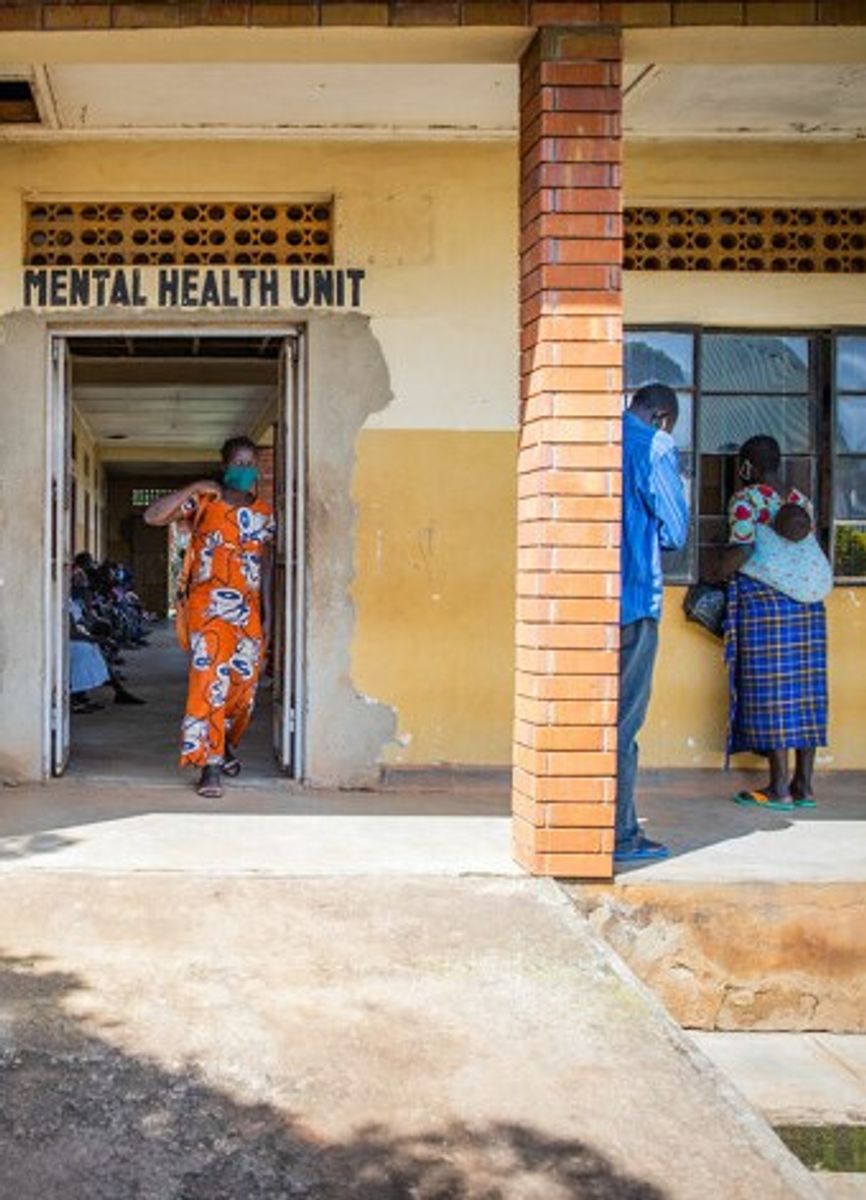
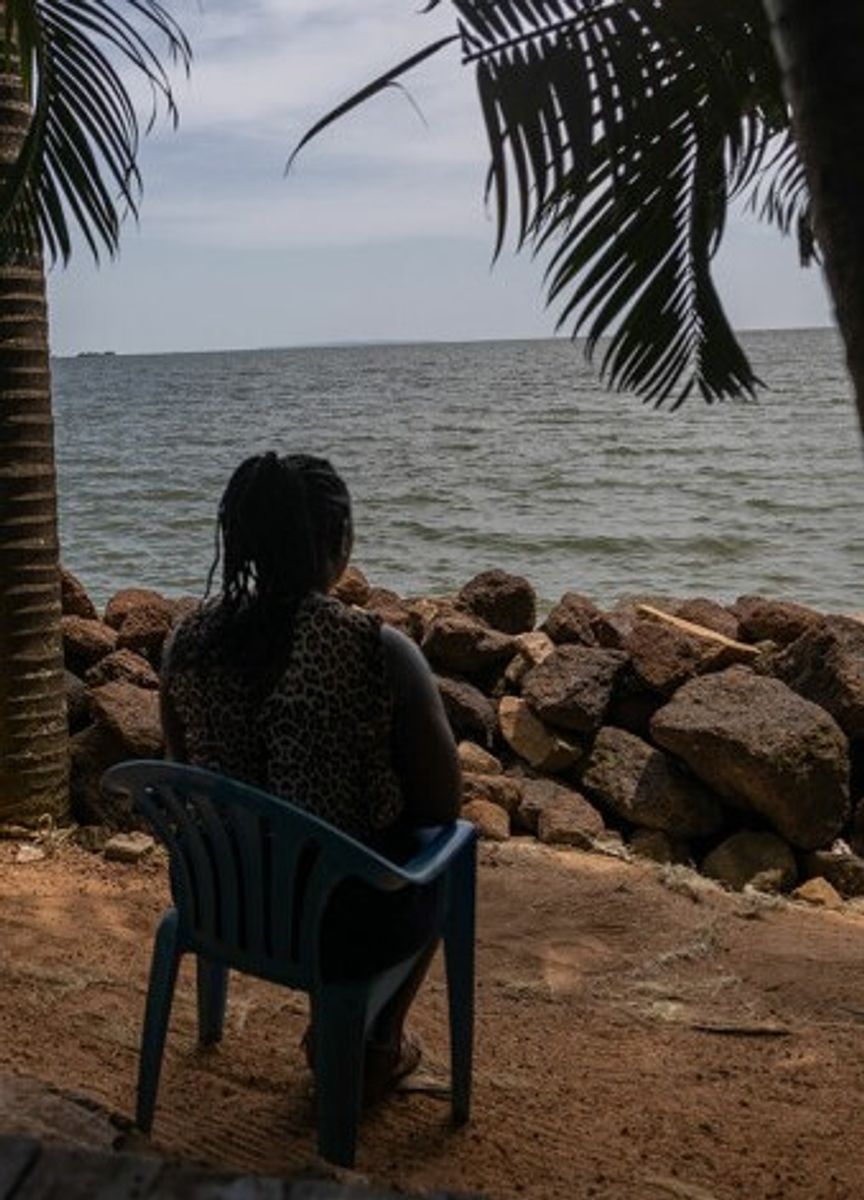
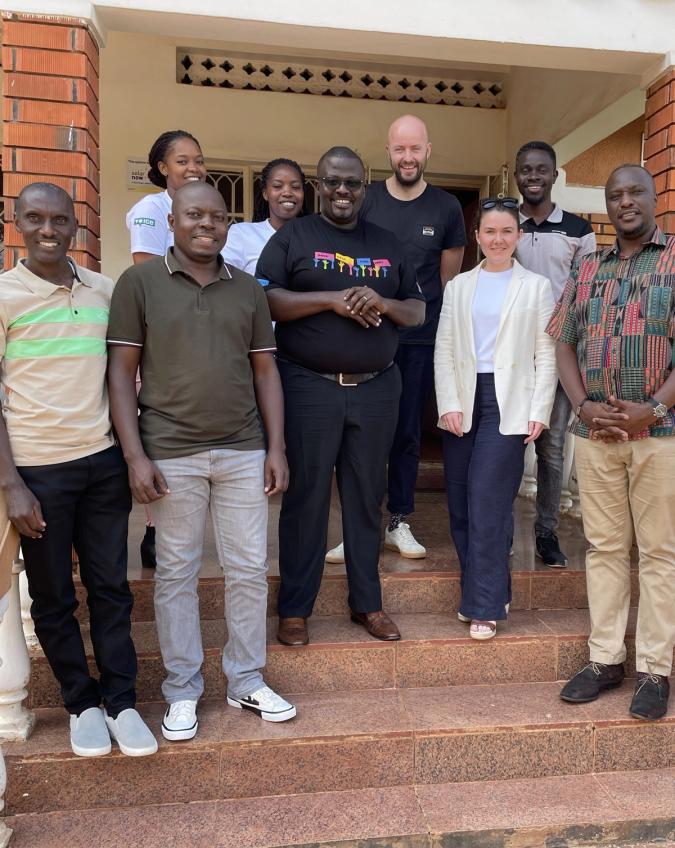
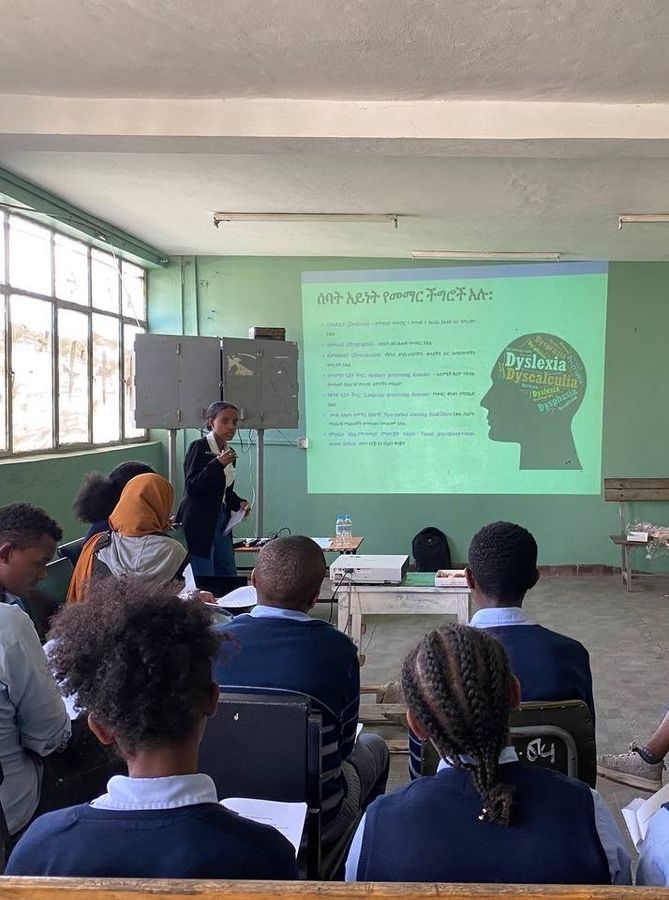
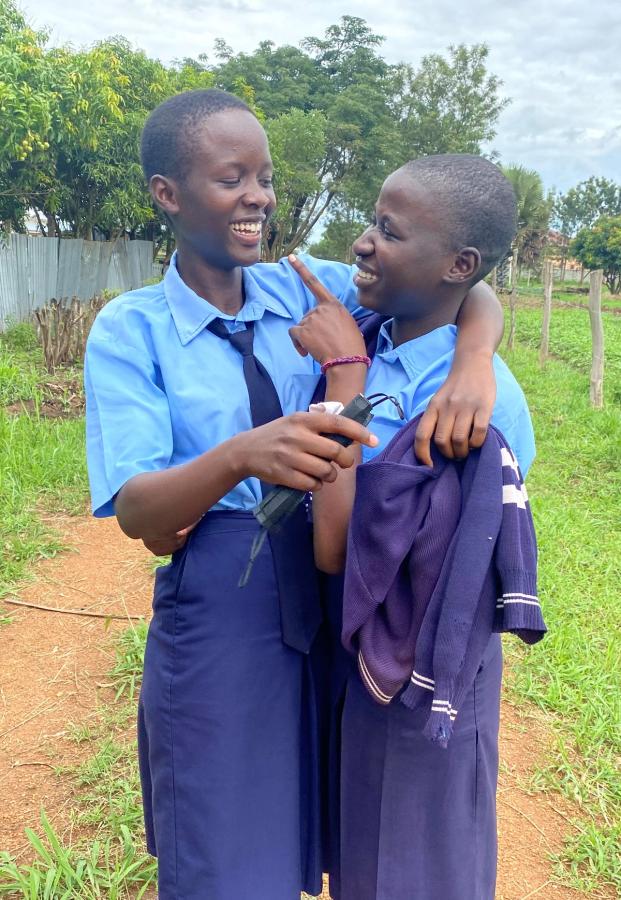
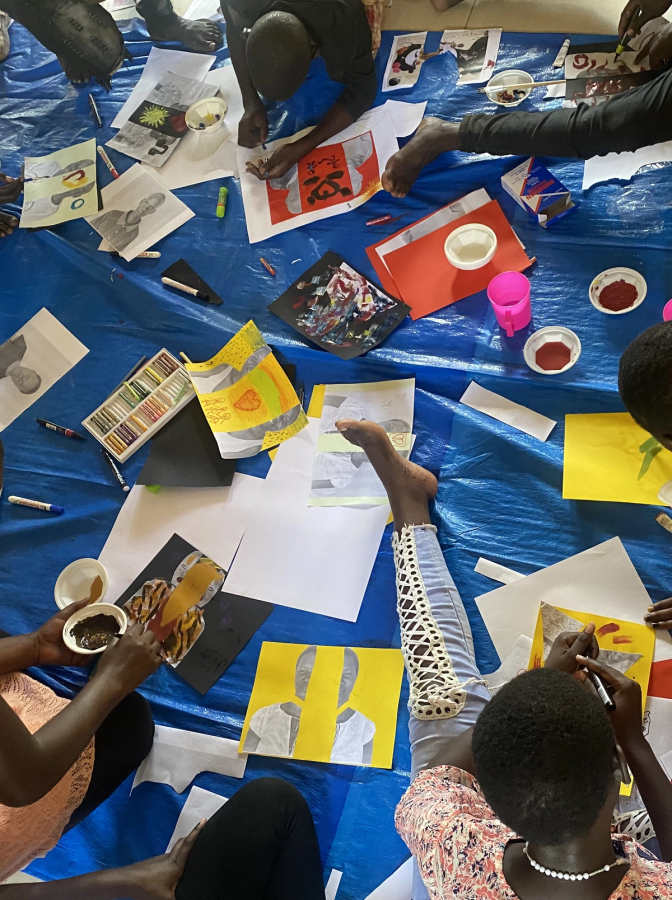
Har du noen spørsmål?
Ta kontakt med Tuva Rosenvold
[email protected]